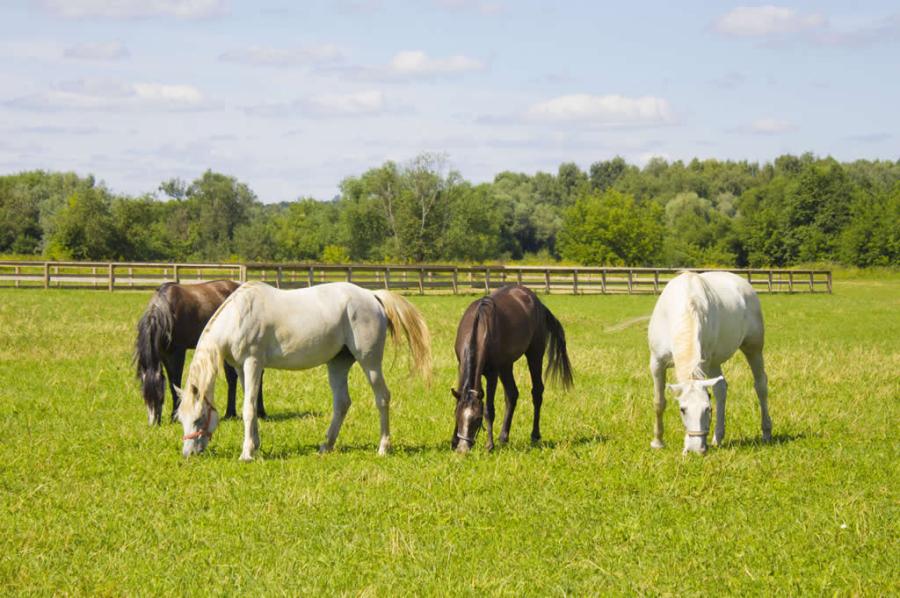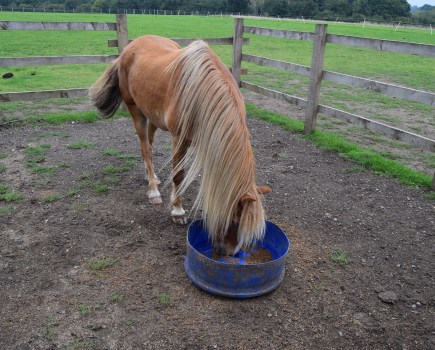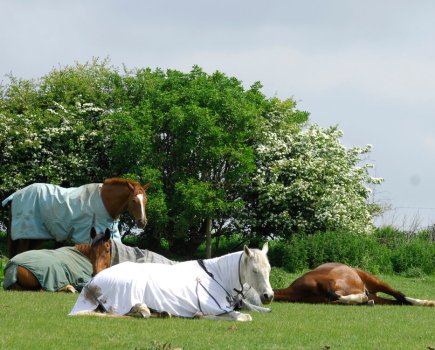*PROMOTION*
Obesity in horses and ponies is increasingly problematic in the UK with studies suggesting that up to 85% of pleasure horses are overweight.
Being overweight can have serious health implications for your horse, affecting their wellbeing, quality of life and putting them at a higher risk of multiple health problems.
It can be really challenging to recognise what a healthy condition looks like. That’s why The Insurance Emporium has spoken to its horse health expert and prepared this helpful guide to help you keep your equine friend’s waistline at a healthy size.
How can I tell if my horse is overweight?
With such a wide variety of breeds and types, there’s no one size fits all when it comes to your horse’s health.
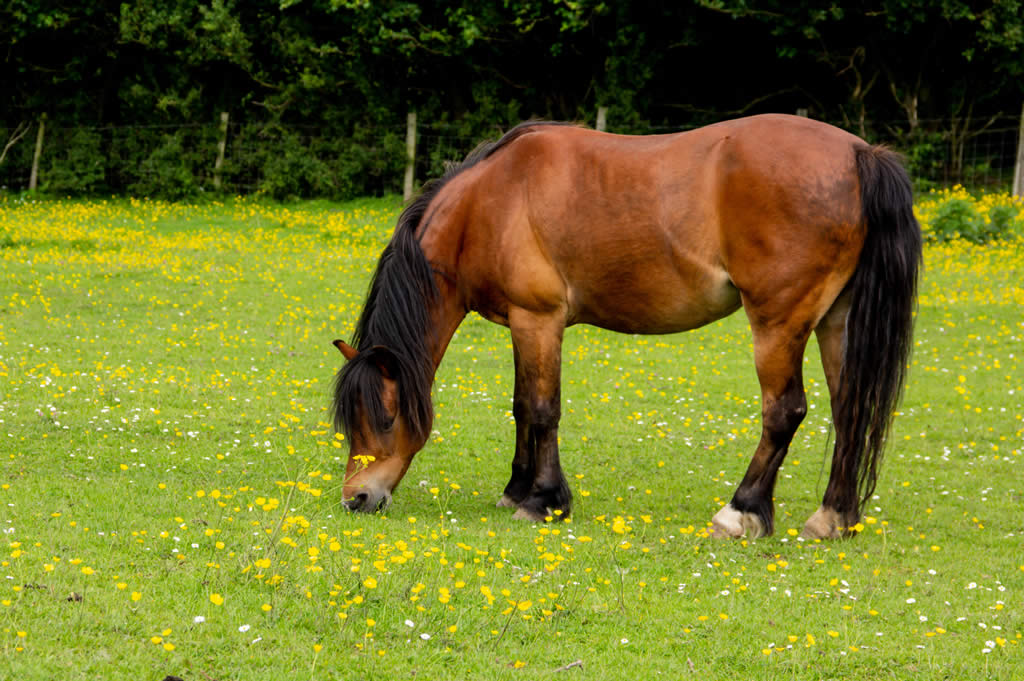
Your horse or pony’s age, breed and height will affect what their ideal weight is
The ideal weight for your horse will depend on a number of factors, including:
- Breed
- Age
- Height
- Level/amount of work they are doing
- Any health issues they have.
If in doubt, consult your vet. They will be able to give you advice on the optimal target weight for your horse.
It’s important to regularly monitor the weight and body condition of your horse. By monitoring your horse regularly, you can easily spot any weight fluctuations or changes in their health condition.
Body condition scoring is a great tool to help you to identify the optimal weight of your horse and allow you to see any unwanted pounds creeping on.
Why has my horse put on weight?
Horses gain weight for exactly the same reason as us: too much food and too little exercise.
Historically, horses evolved to be free-roaming grazers, but as domesticated animals, they often consume high-starch, high-concentrate grain feeds at set times with controlled grazing access. There’s also the calorific, high-sugar treats many people love to feed horses too.
In addition to interfering with their eating habits, we primarily use horses for recreation which limits the amount of work they do — and therefore they don’t burn many calories.
It really is as simple as that. By allowing your horse to consume more calories than required for the work they are doing, he will put weight on.
How can his weight impact my horse’s health?
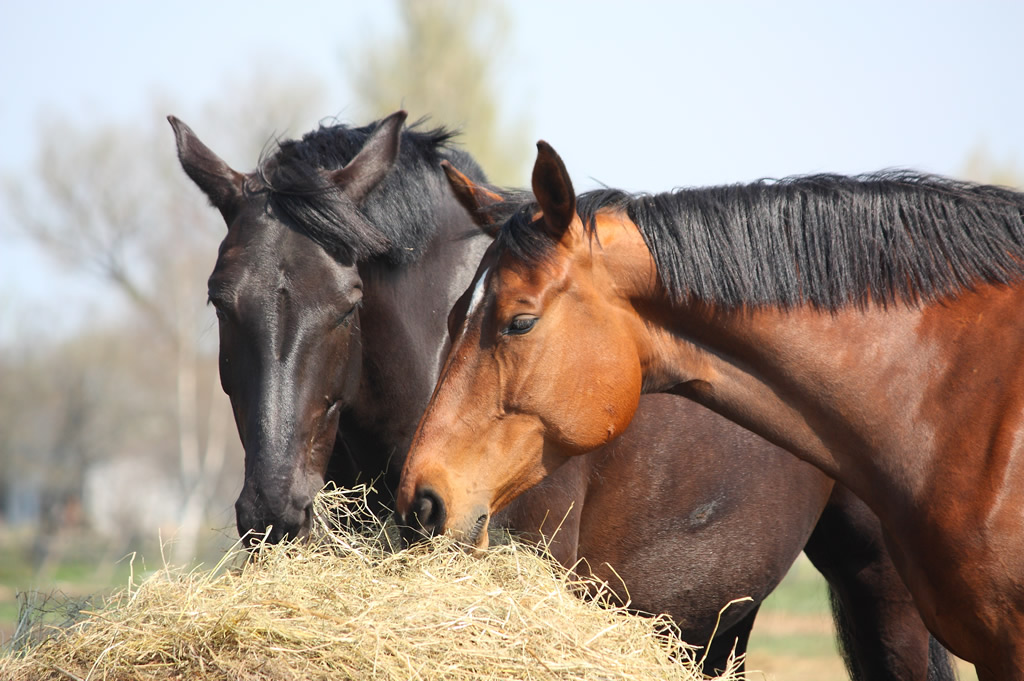
Allowing your horse to become overweight has consequences for his health
Excessive weight on your horse stresses almost all their body systems with serious implications, such as reduced life span. Specifically, an overweight horse may suffer with:
- Increased stress on their heart and lungs
- A tendency toward lethargy and becoming easily fatigued
- Increased risk of injury due to poor conditioning
- Greater strain on their hooves, joints, muscles, and limbs, putting them at risk of ligament and tendon injuries
- Higher risk of developing arthritis
- Impeded bone growth and increased risk of developmental orthopaedic complications
- Reduced fitness and performance ability
- Increased risk of developing Cushing’s syndrome and equine metabolic syndrome.
How can I reduce my horse’s weight?
While getting excess weight off can be difficult, achieving the right weight and a healthy body condition for your horse is possible. Here’s a few things you can try:
1 Tweak their diet
To achieve steady weight loss, you should be feeding your horse no more than 1.5% of their body weight per day. This includes all grass, hay, chaff and other feed. During the weight loss period, a combination of hay and low-calorie chaff should make up the bulk of your horse’s diet. And last but not least, limit the amount of treats you give your horse. He will still love you — we promise!
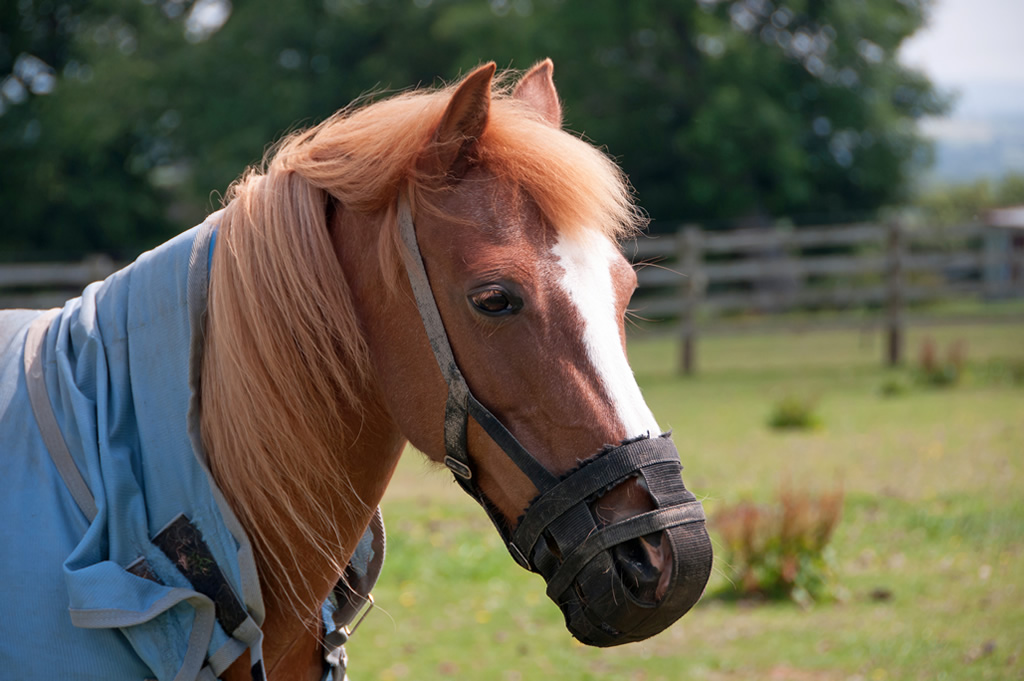
Grazing muzzles should only be used for short periods of time
2 Limit their access to grass
If you’re worried about your horse overgrazing, you can restrict their access to grass. Strip grazing is an effective way to do this. Limiting the number of turnout hours is another way to reduce their daily calories — as is turning out overnight, when there is less sugar in the grass — while wearing a grazing muzzle will limit how much grass he can eat. If your horse is already getting enough calories from grass, look at reducing any extra hay or supplemental feed you are giving as well.
3 Increase his exercise
Exercise is an important part of your horse’s weight loss plan. This doesn’t have to be ridden exercise, you just need get them moving. Lungeing, long reining, loose schooling or in-hand walking can all be beneficial for getting them fit. Remember to start slow and build up your activity sessions while they build up their fitness levels.
4 Monitor their weight
Measure your horse’s weight and body condition score (BCS) on a regular basis so that you can monitor progress. It is also helpful to take photos and keep a record to track weight loss. A BCS score of ‘Good’ or ‘Moderate’ will be a good indication as to when your horse has achieved their optimal weight. If you are unsure of your horse’s optimal target weight, consult your vet.
Take action now
Keeping your equine friend at an ideal weight might not be easy, but with the right tools and management it is possible — and it will do wonders for his health.
If your horse has unintentionally gained weight this year, we hope this guide has helped.
Regularly check your horse’s bodyweight and if you’re concerned about your horse’s diet or health, ask your vet for advice.
Save 30% on horse insurance!
We understand you want to do all you can to keep your equine friend in perfect condition, and taking out horse insurance can help to protect them in the event of the unexpected. 
At The Insurance Emporium, our Defaqto 5 Star Rated Horse Insurance includes cover for Death and Theft or Straying as standard. You can then customise your cover with our range of optional benefits. You could also receive up to 30% discount* on new policies.
Head to theinsuranceemporium.co.uk to see if we have the policy for you.
*The 30% discount is made up of a 20% Introductory Discount plus 10% Multi-horse Discount (if appropriate). The Introductory Discount is available for the first 12 premium payments on lunar monthly and calendar monthly policies, or one premium payment on annual policies.

